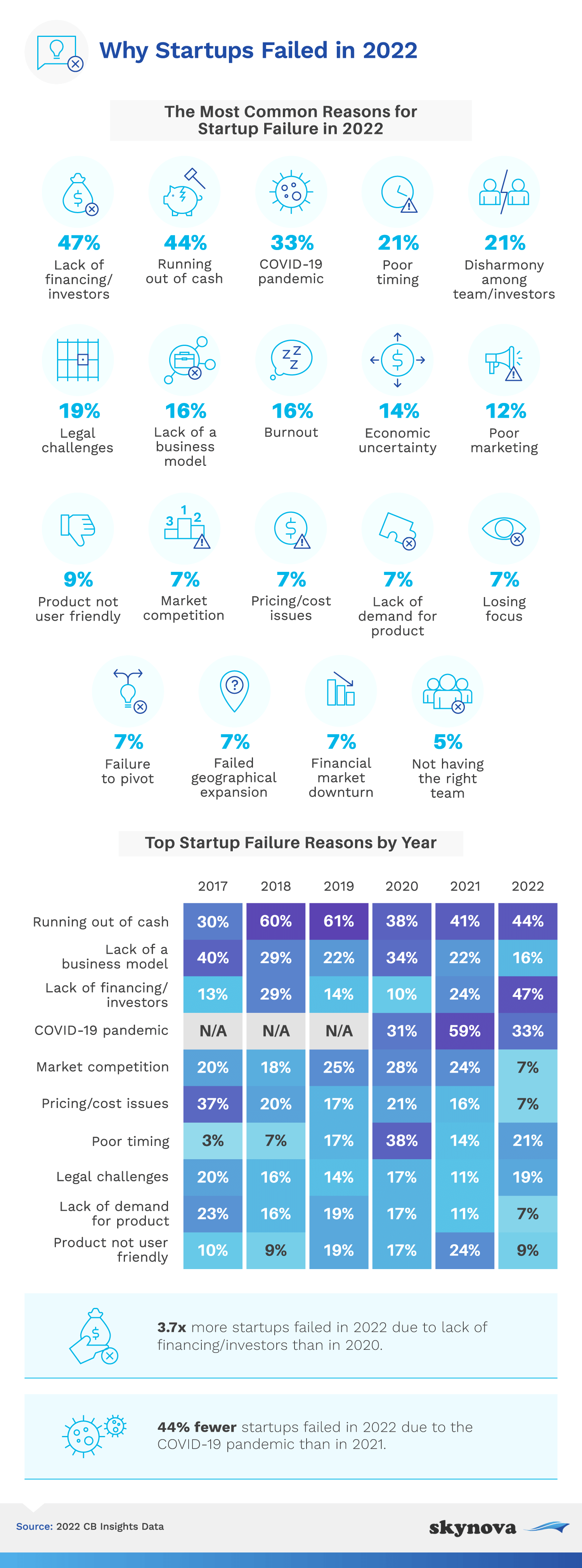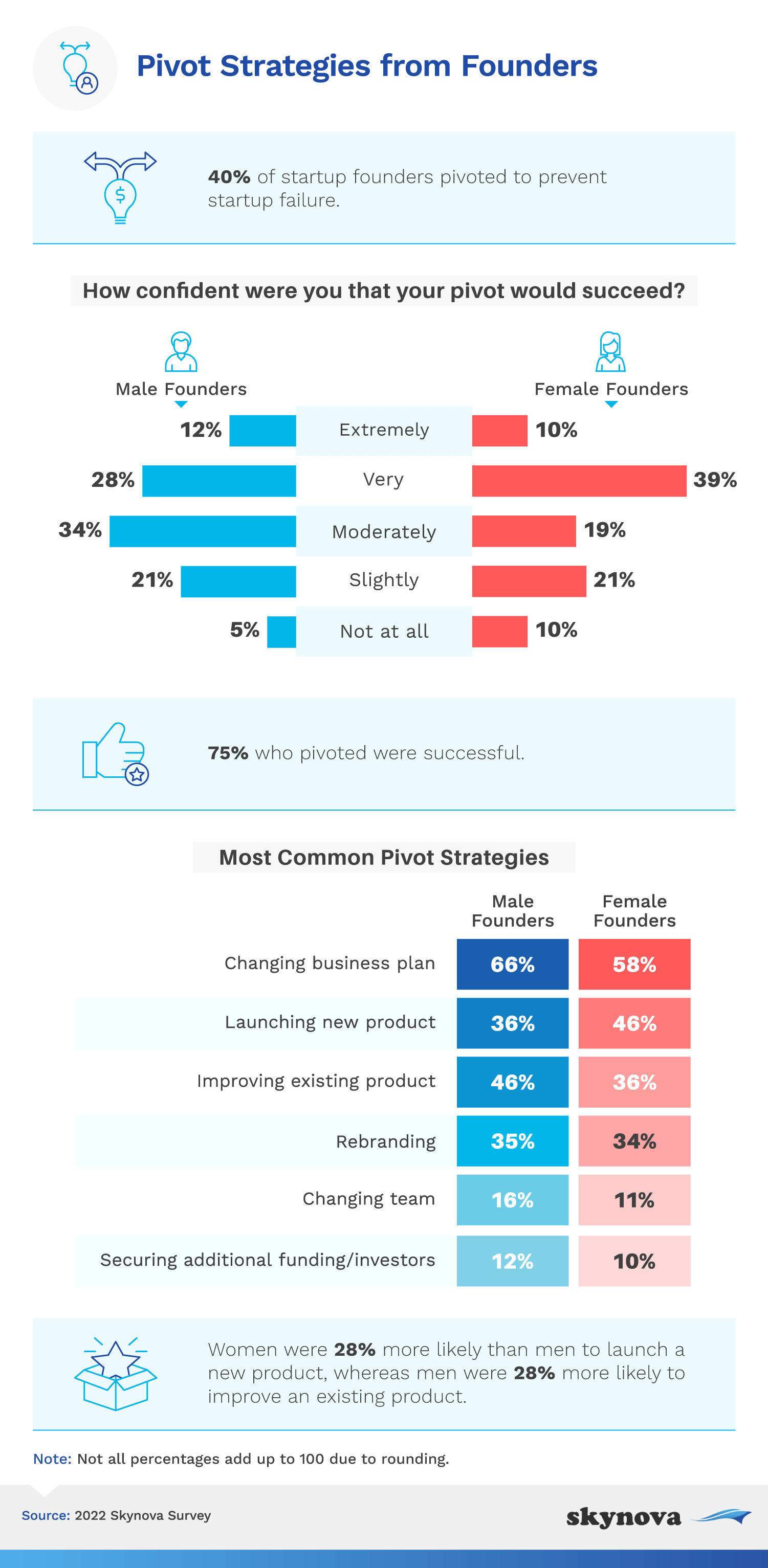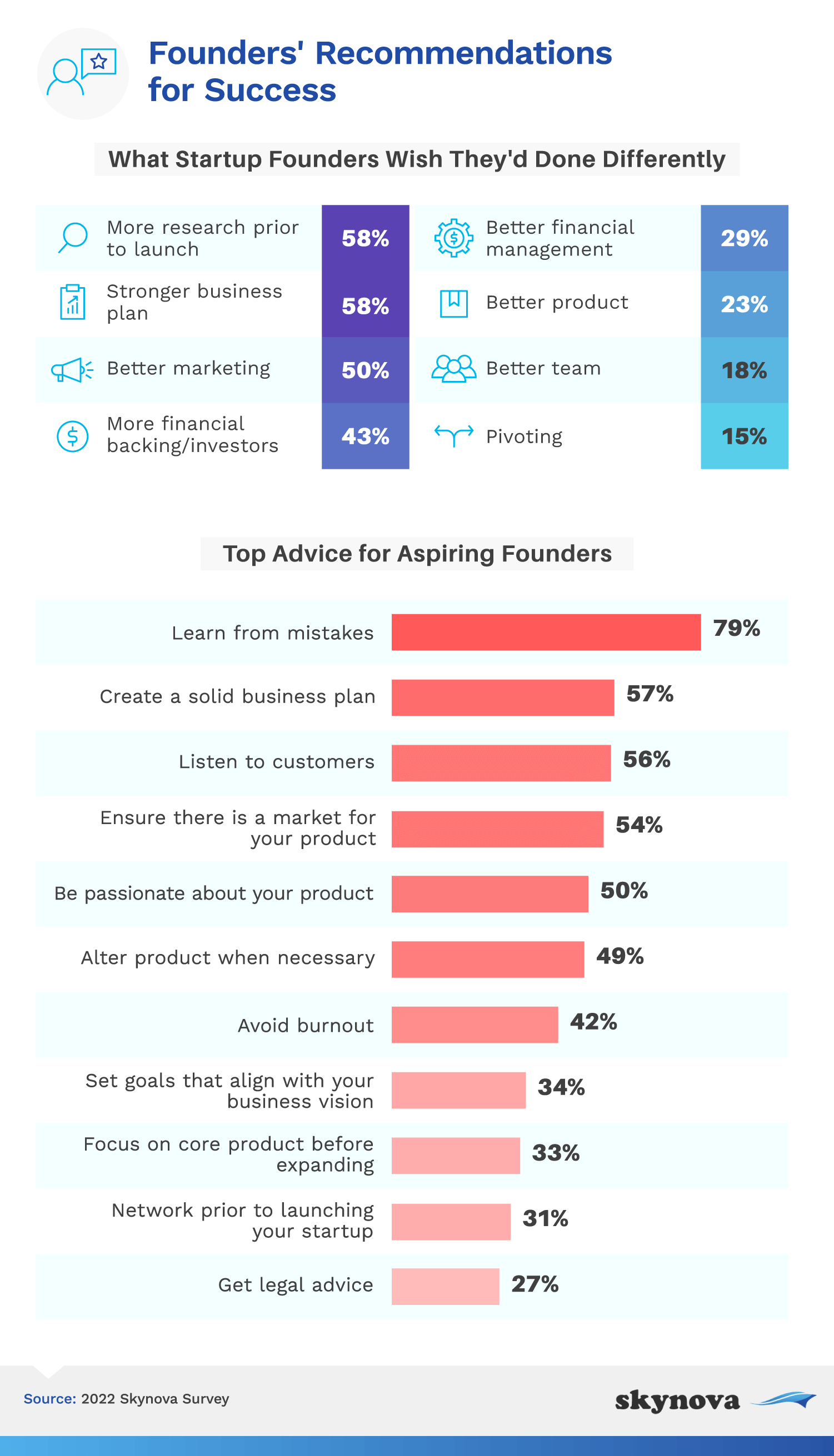
|
Being your own boss sounds like a dream come true for some people, but it's not without challenges. More people than ever are starting their own businesses, but what can they do to keep from becoming one of the 20% that fail within the first two years?
To find out, we surveyed around 500 startup founders about what worked, what didn't, and what they might have done differently in their initial business phases. In addition, we analyzed data on startup failures from the past five years to see what went wrong.
The effects of the pandemic left scars on the business world. But there's more to the story for many of the startups that failed in 2022. First, let's see what some of the top causes were.

Almost half of startups failed in 2022 due to insufficient funding or investor interest. Nearly as many business owners simply ran out of cash. Surprisingly, although many businesses failed in recent years due to issues related to COVID-19, the pandemic was the third most common cause we found and responsible for only one-third of startup failures.
Remaining vigilant and being innovative is still key. If we've learned one thing from the pandemic, it's the importance of being able to pivot — which is why we're diving into that next.
Succeeding in the face of disaster requires both obstacle awareness and adaptability. How likely were businesses to pivot from their initial strategy, and what worked for them?

Flexibility and adaptability are crucial during challenging times. Without them, a business can find itself quickly struggling when up against even the slightest strain. In 2022, 40% of startup founders had to pivot to avoid failure. Redirecting a business requires unorthodox thinking, and the methods used to do it varied, even between the sexes.
No matter how a founder pivots to save a business, there's no way to know if it will succeed. Women tended to show more confidence in their strategies than men, with 39% saying they felt "very confident" that their pivot would be successful. Meanwhile, men most commonly reported feeling only "moderately" so (34%).
While even the best-laid plans can lead to ruin, business ownership means putting your best foot forward. Fortunately for those who put time and effort into these readjustments, their pivots were successful 75% of the time. Now, the question is, what worked best?
Founders have advice for anyone looking to take the leap and launch a new business. Whether you're trying to run your own company or collaborating with those who do, consider these recommendations they shared.

Preventing failure begins with preparation. That's probably why, given the chance of a redo, 58% of founders said they would do more research and create a stronger business plan before launching a new business. Half of them also wished they'd had better marketing to reach their target customers.
As for the top advice for aspiring business owners, most founders (79%) shared that learning from mistakes is the most important skill to cultivate. Over half also said that creating a solid business plan, listening to your customers, and making sure there's a demand for your product in the first place is vital. All these tips are sure to make for an adaptable business that's ready to hit any curveballs the world throws.
Although we found a strong business plan and thorough research to be top keys to startup success, one of the most important (albeit difficult) tips was learning from what hasn't worked in the past. But overall, a combination of strategy and adaptability are the best skills to hone for anyone looking to start a business. Take it from your peers who have launched businesses through the pandemic and survived to tell the tale.
Skynova provides online invoicing software for businesses. Get paid faster with our simple, speedy billing process.
We surveyed 492 startup founders in November 2022. Of them, 50% were male, 47% were female, and 3% were nonbinary. We also analyzed data from CB Insights Startup Failure Post Mortems on startup failures from the past five years to determine the most common reasons startups failed.
Feel free to share these findings with friends or colleagues, but please use the information presented here for noncommercial purposes only. Please also provide a link back to this page to credit our researchers.